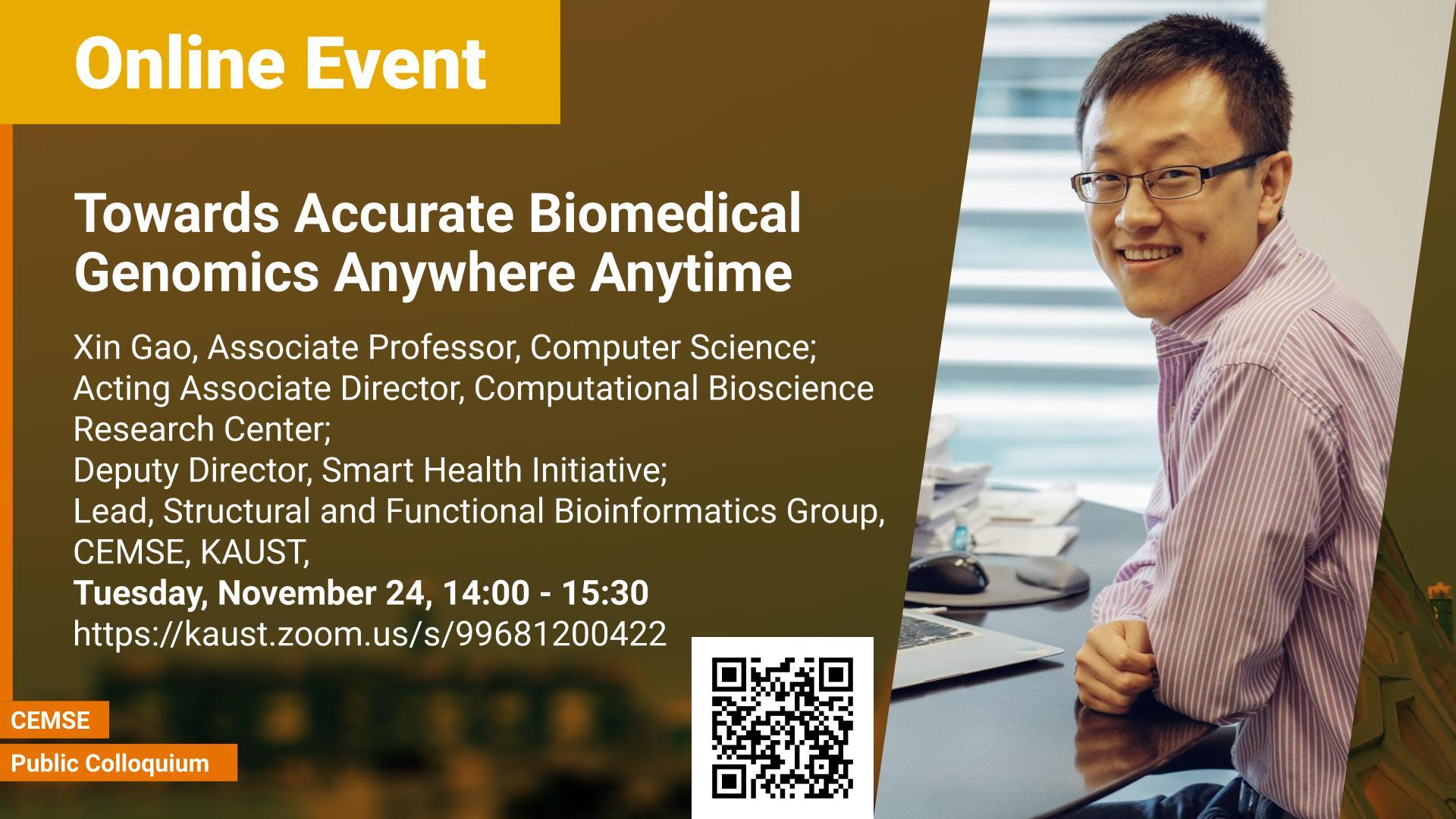Abstract
Current genetic diagnosis by next-generation sequencing requires a large investment of resources and offers little point-of-care portability. Furthermore, it is unable to detect many types of genetic variations – including large deletions, duplications, and balanced translocations – that are relevant to human diseases and health.
Comparing to other sequencing technologies, Nanopore sequencing owns the advantages of point-of-care (i.e., sequencing anywhere anytime), long reads (i.e., assembly-free to detect various genetic variations), and PCR free (i.e., sample preparation is easy). However, its application is severely limited by a number of challenges, including low base-calling accuracy, lack of training data for AI-based methods, and computational burden on reads mapping.
In this talk, I will first give an overview of the research activities in Structural and Functional Bioinformatics Group (http://sfb.kaust.edu.sa). I will then focus on our efforts on developing computational methods to tackle key open problems in Nanopore sequencing. In particular, I will introduce our recent works on developing a collection of computational methods to decode raw electrical current signal sequences into DNA sequences, to simulate raw signals of Nanopore, and to efficiently and accurately align electrical current signal sequences with DNA sequences. I will further introduce their applications in biomedicine and healthcare.
Brief Biography
Dr. Xin Gao is an associate professor of computer science in CEMSE Division at KAUST. He is also the Acting Associate Director of the Computational Bioscience Research Center (CBRC), Deputy Director of the Smart Health Initiative (SHI), and the lead of the Structural and Functional Bioinformatics Group at KAUST. Prior to joining KAUST, he was a Lane Fellow at Lane Center for Computational Biology in School of Computer Science at Carnegie Mellon University. He earned his bachelor degree in Computer Science in 2004 from Tsinghua University and his Ph.D. degree in Computer Science in 2009 from University of Waterloo.
Dr. Gao’s research interest lies at the intersection between computer science and biology. In the field of computer science, he is interested in developing machine learning theories and methodologies related to deep learning, probabilistic graphical models, kernel methods and matrix factorization. In the field of bioinformatics, his group works on building computational models, developing machine learning techniques, and designing efficient and effective algorithms to tackle key open problems along the path from biological sequence analysis, to 3D structure determination, to function annotation, to understanding and controlling molecular behaviors in complex biological networks, and, recently, to biomedicine and healthcare.
He has published about 230 papers in the fields of bioinformatics and machine learning. He is the associate editor of Genomics, Proteomics & Bioinformatics, BMC Bioinformatics, Journal of Bioinformatics and Computational Biology, and Quantitative Biology, and the guest editor-in-chief of IEEE/ACM Transactions on Computational Biology and Bioinformatics, Methods, and Frontiers in Molecular Bioscience.

